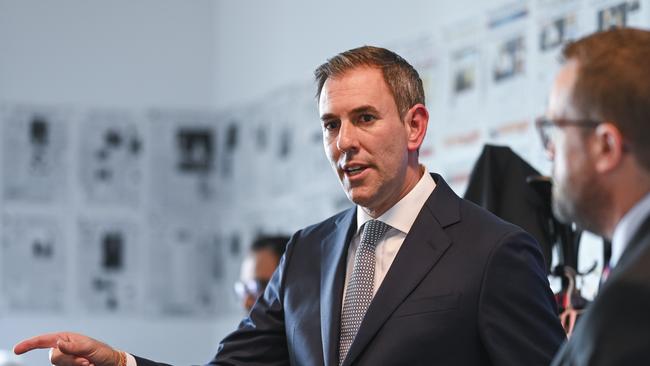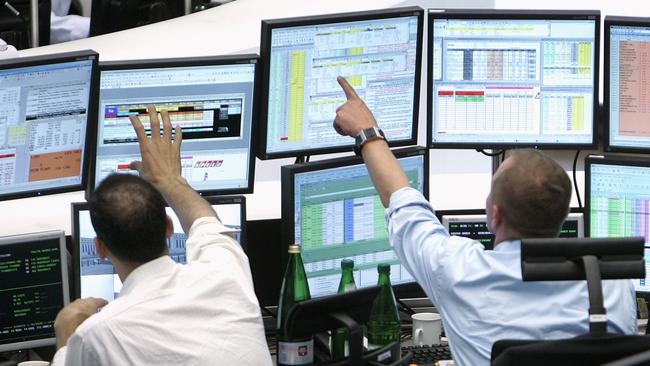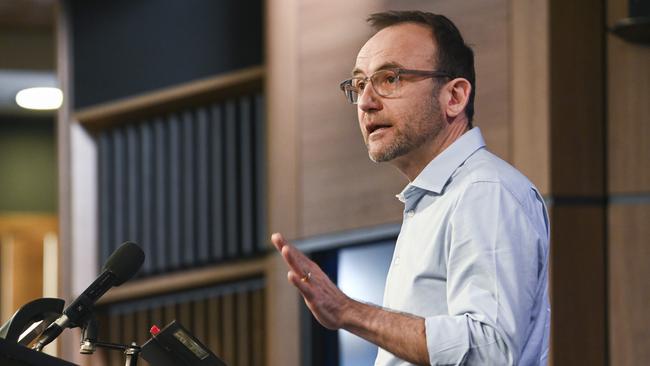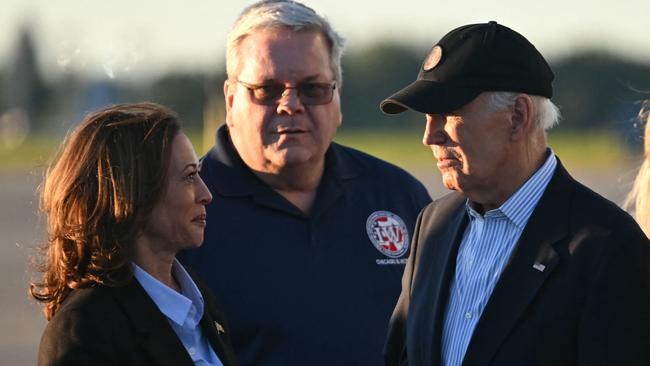
Hypothetically, if Australian inflation stays high and somehow Jim Chalmers tries to force the Reserve Bank to reduce interest rates, then our currency, bond and share markets would be trashed.

Current Australian opinion polls predict the Greens will have the balance of power after the next election. The combination of the Greens’ policies and the Chalmers sentiments creates a very dangerous anti-market cocktail after the May election.
But the Australian election will be held after the US has decided who will be its next president. The proposed US wealth transfer being planned by the Democrats’ Kamala Harris is similar to that of Greens’ Adam Bandt.
Both the US and Australia have not informed young voters that the election policies they favour may have market implications that undermine their objectives.
All politicians should remember what happened in Britain when, two years ago, Liz Truss moved to lower taxes in a way that was unacceptable to the market. British securities were trashed and Truss was forced to resign.
In the US presidential race, Kamala Harris thought she could raise vast sums with a Chalmers-style tax on unrealised capital gains and distribute the money to those under financial stress.
Suddenly, the billionaires who hate Donald Trump and are big donors to the Harris campaign took her aside and explained that such a tax would decimate the US stock and property markets. The wealth destruction would slash the amounts she planned to raise and probably create a US recession.
But there are now signs that her base political aim has been changed, so if she wins office and continues her big spending without the unrealised capital gains taxes, then the US dollar will be vulnerable – unless interest rates are increased.
Sharemarkets’ concentration on inflation and interest rates takes attention away from these developments, which have the potential to substantially reduce the profitability of US and Australian companies and slash the rewards for investing.
Bandt advocates a $514bn tax hit on large listed companies in exchange for the Greens supporting the ALP in a hung parliament.
The Greens want a 40 per cent tax on excessive profits earned on turnover after the first $100m, a gas and oil tax implemented via changes to the Petroleum Resource Rent Tax and a 40 per cent mining tax capturing coal and other mining but excluding lithium and nickel, which are deemed critical to the net zero transition.

Parliamentary Budget Office modelling, commissioned by the Greens, shows an excessive profits tax could raise about $65bn over the forward estimates.
Among those companies that have “extracted excessive profits over the past decade” and face a 40 per cent tax rate are the big four banks, Wesfarmers, Telstra, Woolworths, Coles, JB Hi-Fi and Ampol. Among the wealth redistribution proposals are including dental and mental heath on Medicare, wiping out student debt and free education.
These are policies that the young voters will find very appealing. Kamala Harris has come to similar conclusions and if she becomes president, as US opinion polls are predicting, then the Australian election will be held against a very different backdrop.
Overall, Harris would increase corporate and wealth taxes by about $US5 trillion over the next decade and cut other taxes and increase benefits by more than $US4 trillion.
The US government’s total collections – projected at $US63 trillion over 10 years – would be little changed, but the Harris agenda would shift who pays and receives.
Under Harris, company tax will rise from 22 to 28 per cent (Trump will reduce it) and large companies will pay a 21 per cent minimum tax instead of the current 15 per cent. They also would pay higher taxes on foreign profits.
Harris currently plans to tax unrealised capital gains at a minimum rate of 25 per cent on people with net worth exceeding $US100m. Under Harris, capital gains for households making at least $US1m would be taxed as ordinary income.
In the US, there is a sharp economic decline taking place and this is creating an environment for lower interest rates. In Australia, a similar decline is not affecting inflation in the same way.

John Dahlsen, head of one of Australia’s larger private companies and a former ANZ director, has issued an economic paper that shows that Australia’s gross domestic product per capita is falling, so creating a decline in our overall standard of living.
He believes that even if prices flatten and interest rates fall, this will not significantly affect our falling standard of living.
On a geographical basis, parts of the country such as the western suburbs of Sydney and Melbourne, are clearly in recession. Sectors that are in recession include house building, hospitality, most small businesses and especially small retail. So in one way or another, most of Australia is in recession and there are no signs of this abating.
Dahlsen points out that the governments forecast rising expenses in the current financial year in defence (6.5 per cent), education (7.2 per cent), health (15.3 per cent), social security (36.3 per cent) and other services (18.8 per cent). This cannot be matched by receipts and will only lead to more debt, probably for a decade or more. That’s why the combination of the Greens and an ALP embracing Chalmers’ views is not good news for markets.





With global share, bond and currency markets being driven by interest rates, politicians in Australia and around the world face great dangers in implementing electorally appealing policies that ignore markets.